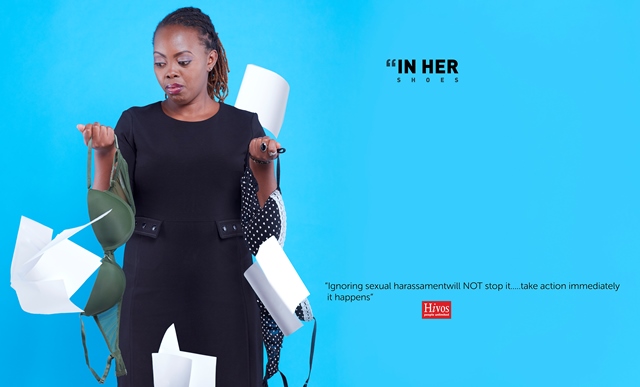Despite the ground breaking record made by women’s rights globally in recent years, it’s quite appalling that incidences of sexual harassment continue to escalate in the workplace. A vast number of these cases have been meted out on women who unfortunately have had to live with the scarring effect associated with this crime.
One year after the #MeToo campaign, cases of women who have faced sexual harassment at work continue to spiral. While most of these women were applauded for their bravery and courage to speak out against this ill and share their stories with hope that more women will come out; a stark reality looms of the structural damage it leaves on them socially and emotionally.

Experts argue that sexual harassment is a manifestation of power relations where women are much more likely to be victims because more often than not, they lack the power (as compared to men), find themselves in insecure or vulnerable positions and simply lack the confidence to speak out.
In fact women who documented their stories through blogs, memes and hashtags in the #MeToo campaign are still fighting. How? They have been left out to repair the structural damage; many are still battling to hold their abusers to account, others have been re victimized while some have put on the true resolve of activism to advocate for legislation and other policy reforms that will protect other women.
The overarching connecting dots of violence against women can be traced back to patriarchy with a society that normalized this reality. The ripple effect of this has been: unpaid work- where women do all the housework and care work, negative treatment of female sexuality with gender unequal relations at the workplace, unequal pay for equal work and a general confinement to the informal economy and choices that lead to exploitation and indecent work. .
In reality, the workplace has been a medium where women have witnessed persistent inequalities and gender dynamics that have continued to keep them subordinate. At Hivos East Africa, we realize that this is a reality we must change in order to contribute to a free and fair world where everyone can equally contribute without stigma or discrimination.
By using an innovative approach, Hivos East Africa is looking to use a lab model (a lab is a space where citizens and policy makers co-create to come up with solutions and ideas that bring about structural change) where stakeholders will work together with an aim of solving sexual harassment.
The lab will be used to test new ideas, design prototypes, learn and share what works and what doesn’t in solving sexual harassment as a social problem as well as making workplaces safe, just and fair.
The Hivos Anti-Sexual Harassment Lab will develop innovative solutions to sexual harassment that can be scaled to the private sector, government agencies the civil society and other sectors. The proposed innovations within the lab will revolve around public policy, new business models, framing of cultural values and behavioral change at both an institutional and individual level. By investing in the lab, Hivos seeks to nurture a culture that protects women in waged employment from sexual harassment.
Hivos believes that when women thrive, society benefits. Join our resolve to counter sexual harassment in the workplace!




